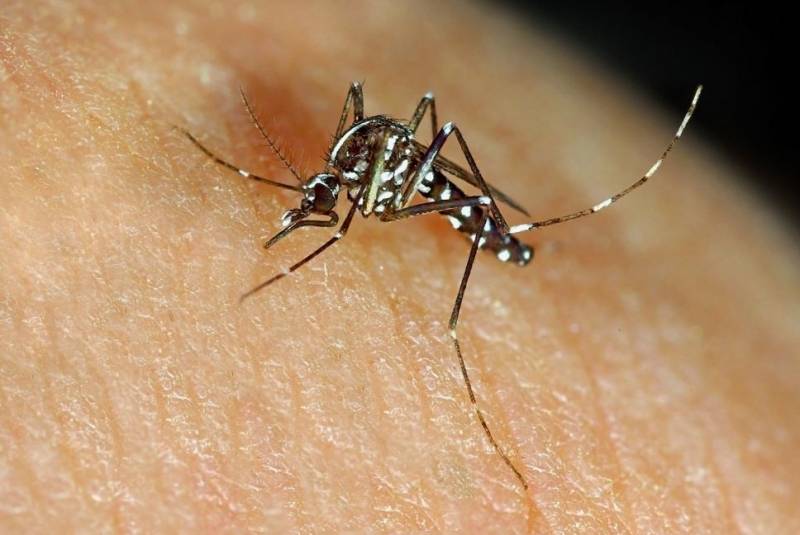Date Published: 11/06/2024
Yecla gets tough on tiger mosquitoes this summer
ARCHIVED ARTICLE -
The tiger mosquito prevention and control programme is now underway in the northern Murcia town
Yecla Town Hall has just launched its Tiger Mosquito Prevention and Control Programme ahead of the summer season, as reported by local Councillor for Health, Vicente Quiles.
The
tiger mosquito was detected in Yecla for the first time in September 2018, and from 2019 to 2022, the Council formed part of the Tiger Mosquito Surveillance System of the Regional Ministry of Health. After no action at all was taken by the Regional Ministry last year, Yecla Town Council has decided that this year it will launch its own programme to try and keep down the numbers of these pesky parasites.
Populations of tiger mosquitoes, native to Southeast Asia, have been growing steadily in Spain in recent years. They are characterised by black and white stripes or patterns on their hind part. The bites from female tiger mosquitoes are thought to be itchier than those from other, native species of mosquito and they can transmit up to 20 infectious diseases including dengue fever.
This year, the tiger mosquito surveillance system in Yecla began in April and will end on December 17. It uses mosquito monitoring devices and traps to track how many tiger mosquitoes are in the municipality. Two monitoring traps have been placed in the Morterico Garden and the ‘García Lorca’ Garden, and samples are collected every 15 days.
To date, the town has the results of two samplings, the first with positive results (i.e. presence of tiger mosquitoes) at both points, and the second sampling, with negative results at both points.
In addition to this monitoring, the Department of Health, in collaboration with the pest control company, Lokímica, has published a new information leaflet to remind citizens of the ‘Prevention and control measures against the tiger mosquito’ so that everyone knows what they can do to control tiger mosquito populations.
Indeed, Councillor Quiles pointed out that 80% of the breeding sites of the tiger mosquito in Yecla are on private property where the Town Hall cannot gain access.
Lidia Nájar, a biologist from the company Lokímica, in charge of carrying out this publicity campaign, explained that it is essential to control and remove small pools of standing water, which are breeding grounds for the tiger mosquito. Stagnant water could be in buckets, dustbins, ashtrays, flowerpot dishes, fountains, drains, animal drinking troughs, drainage channels, holes in trees, etc. Wells and cisterns should also be protected with mosquito nets, and drip irrigation should be monitored. It is also important to maintain adequate chlorine levels in swimming pools.
article_detail

|












